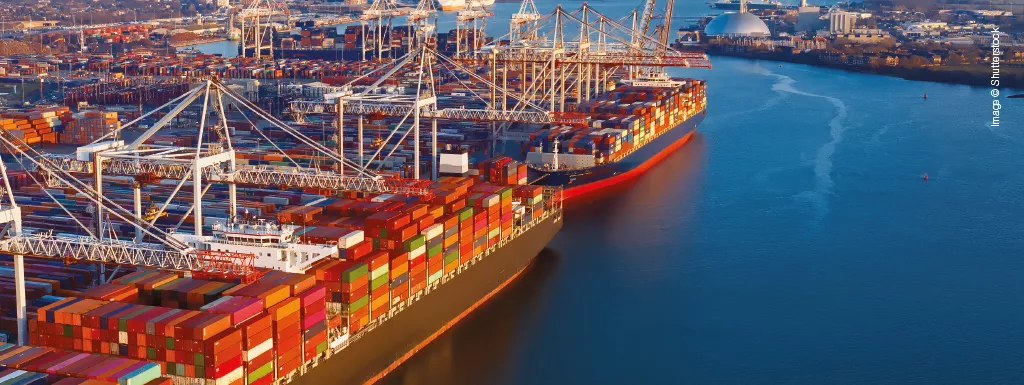How Bunkering Services Support International Maritime Trade
Introduction
Bunkering services play a crucial role in international maritime trade, providing the fuel that powers ships across the globe. As the backbone of international shipping, bunkering services enable vessels to transport goods and commodities efficiently and reliably. In this article, we explore how bunkering services contribute to the global economy, the challenges they face, and the innovations driving the future of sustainable maritime fuel solutions.
What Are Bunkering Services?
Bunkering services refer to the process of supplying fuel to ships, typically when they are docked or anchored at a port. These services include the storage, handling, and transfer of fuel, often in the form of marine fuel oil, marine diesel oil, and liquefied natural gas (LNG). Bunkering providers ensure that vessels are adequately fueled for long-distance journeys, making it possible for them to transport cargo across international waters without interruption.
The Role of Bunkering in Maritime Trade
1. Fueling Global Shipping Operations
Bunkering is essential for maritime trade, as ships require a constant fuel supply to operate effectively. With over 80% of global trade relying on shipping, the demand for bunkering services is enormous. Bunkering hubs, like Singapore, Rotterdam, and Fujairah, serve as key locations where vessels refuel before embarking on international routes, supporting the seamless flow of goods worldwide.
2. Cost-Efficiency in Logistics
Bunkering services are strategically located near major shipping routes, helping to reduce fuel costs for shipping companies. By refueling at these hubs, vessels can minimize travel time and maximize fuel efficiency. Cost-effective bunkering solutions enable shipping companies to reduce overall operating expenses, allowing for competitive freight rates and benefiting international trade economies.
3. Ensuring Safe and Reliable Operations
Bunkering providers follow strict safety regulations and protocols to prevent accidents, spills, and contamination. These safety measures ensure that the fueling process is conducted efficiently and responsibly. Compliance with international standards also helps to reduce environmental risks associated with fuel handling, ensuring the safety of both the maritime environment and shipping crews.
Environmental Challenges in Bunkering
The environmental impact of bunkering services is a significant concern, as marine fuel emissions contribute to air and water pollution. To address these challenges, the International Maritime Organization (IMO) has introduced regulations, such as the IMO 2020 sulfur cap, which mandates a reduction in sulfur content in marine fuel. These regulations encourage bunkering providers to adopt cleaner fuels and innovative solutions, such as LNG and biofuels, to minimize environmental impact.
Advancements in Sustainable Bunkering
1. Alternative Fuels and Cleaner Options
The shift towards sustainable fuel sources is transforming the bunkering industry. Bunkering services now include alternative fuels, such as LNG, hydrogen, and biofuels, that produce fewer emissions and reduce environmental impact. These cleaner fuel options align with global goals for decarbonization and contribute to a more sustainable future for maritime trade.
2. Digitalization and Efficiency Improvements
Digital solutions are being implemented to streamline bunkering operations, from fuel monitoring systems to automated invoicing. Digital bunkering platforms enable real-time tracking of fuel consumption, inventory management, and emission monitoring, improving the efficiency and transparency of bunkering services. These technological advancements help shipping companies optimize fuel usage, lower costs, and adhere to environmental regulations.
Key Locations for Bunkering Services
Global bunkering hubs are strategically positioned along major trade routes, providing refueling points for international vessels. Key locations include:
- Singapore: One of the largest bunkering hubs in the world, known for high-quality fuel and efficient services.
- Rotterdam: Europe’s leading bunkering port, offering a wide range of fuel options, including biofuels.
- Fujairah: A key location in the Middle East, offering reliable and accessible bunkering services along major shipping routes.
The Economic Impact of Bunkering on Maritime Trade
Bunkering services contribute significantly to the global economy by supporting the maritime trade industry, which is vital for international commerce. The availability of reliable bunkering services ensures that ships can operate without delay, facilitating the timely movement of goods across continents. This efficiency lowers logistical costs, reduces delivery times, and strengthens trade partnerships, benefiting economies worldwide.
Conclusion
Bunkering services are fundamental to international maritime trade, enabling ships to transport goods efficiently and sustainably. By providing fuel at strategic locations, bunkering supports global shipping operations, ensuring cost-efficiency and safe practices. As the industry adapts to environmental regulations and technological advancements, the future of bunkering looks promising, with a focus on sustainable fuel options and digital innovations. In an increasingly globalized world, bunkering services will continue to be a key pillar in the growth and sustainability of international maritime trade.





